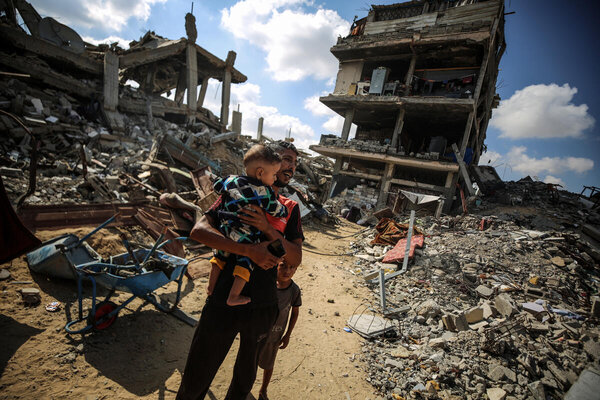New Gaza food security assessment sees famine risk persisting amid ongoing fighting and restricted aid operations
The Integrated Food Security Phase Classification (IPC) snapshot – released today – projects that over the coming months 1.95 million people in Gaza (91 percent of the population) will face acute food insecurity (IPC Phase 3 or worse). The IPC, which uses global, scientific standards to evaluate food insecurity levels, also said that 345,000 people would face Catastrophic levels of hunger (IPC Phase 5), and 876,000 people (41 percent) Emergency levels of hunger (IPC Phase 4).
The report found a marginal reduction in the severity of food insecurity in September-October 2024 compared to the last report issued in June. This was largely attributed to an uptick in humanitarian assistance in North Gaza, Gaza City, Deir al-Balah and Khan Younis governorates between May and August 2024.
This slight improvement will be short-lived, the report warned, due to the ongoing fighting and the sharp reduction of humanitarian and commercial flows since September. This is expected to push most of the population back into severe food insecurity and worsening levels of acute malnutrition during the coming winter.
“No humanitarian food supplies entered northern Gaza in the first two weeks of October, and only a few trucks reached the south and central areas, meaning the situation is likely far worse than what the assessment picked up when data was collected in September,” said Arif Husain, WFP’s Chief Economist. “Commercial supplies are down, there is large-scale displacement, infrastructure is decimated, agriculture has collapsed and people have no money. All this is reflected in the IPC’s projection that the situation will get worse from November onwards.”
Due to a shortage of food supplies, in September, WFP was only able to support half of the families it planned to reach, and with reduced rations. In October, WFP has been unable to conduct any food parcel distributions and supplies for its hot meal kitchens and bread production are running dangerously low.
The IPC report highlights that northern and central Gaza governorates, along with Rafah in the south, face a risk of famine between November 2024 and April 2025 if fighting continues and humanitarian and commercial supply lines remain severely restricted. The ongoing conflict in northern Gaza and Deir al-Balah suggests that the worst-case scenario is plausible, the report warned.
WFP has consistently called for crossing points to be open, bureaucratic impediments to be removed, and law and order to be restored around the crucial Kerem Shalom crossing point in Gaza’s south. It has also called for a halt to fighting to enable WFP and humanitarian agencies to respond adequately to the crisis.
“The small progress we have seen is a signal that the flow of humanitarian and commercial cargo into Gaza was working. But we are now in a very difficult situation. Without safe and sustained access, WFP cannot deliver lifesaving humanitarian assistance at the required scale,” Husain said.
For photos, click here.
For video footage, click here.
# # #
The United Nations World Food Programme is the world’s largest humanitarian organization saving lives in emergencies and using food assistance to build a pathway to peace, stability and prosperity for people recovering from conflict, disasters and the impact of climate change.
Follow us on X, formerly Twitter, via @wfp_media



